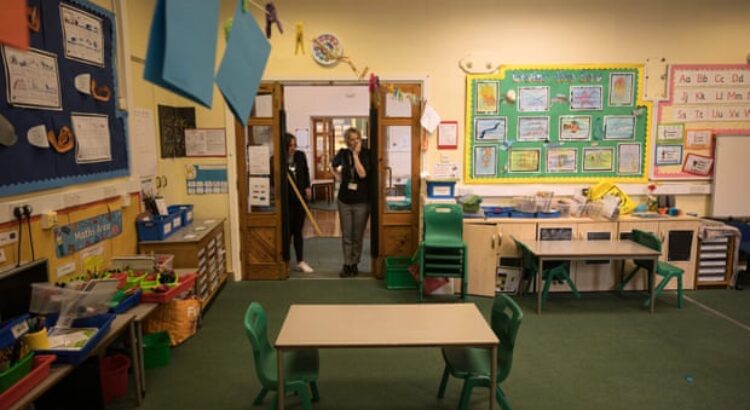By: Richard Adams and Ian Sample.
School leaders said the government’s publication of scientific advice failed to make a convincing case for the early reopening of schools in England, as the government’s chief scientific adviser said an effective testing and tracking system was necessary for more pupils to return to the classroom.
After pressure from teaching unions, the government published 12 documents presented to its Sage committee of scientific advisers looking at the effect of coronavirus on children and how schools could safely reopen to more pupils.
But union leaders said they found little in the documents to reassure staff or parents that reopening primary schools in England by Boris Johnson’s stated target of 1 June was a safe decision.
Patrick Roach, general secretary of the NASUWT teaching union said the evidence was “inconclusive”, while Geoff Barton, leader of the Association of School and College Leaders, said the government “must be able to show very clearly that its five tests have been met before it gives the green light to any wider opening from 1 June”.
Patrick Vallance, the government’s chief scientific adviser, said on Friday that Sage had been very clear that an effective “test, track and trace” mechanism was necessary in the event of schools reopening, and the sooner in place the better in order to make changes to England’s lockdown.
Roach said it remained his union’s view that no schools should reopen more widely until it was safe to do so, and that the publication of the Sage documents would only add to the uncertainty.
“[Sage] states that large-scale community testing is needed to better understand and monitor the prevalence of and susceptibility to Covid-19 in children, yet the government’s plans for the reopening of schools from 1 June are premature whilst a widespread community testing system will not be in place,” Roach said.
Gavin Williamson, the education secretary, said the Sage papers showed that “the phased, cautious return of a limited number of pupils to classrooms has been a carefully considered decision based on the best scientific and medical advice”.
“My department continues to engage with the school, college and nursery sectors and I am enormously grateful for all the planning and preparation they are doing, alongside local authorities and academy trusts,” Williamson said.
A number of local authorities have said their maintained primary schools will not be ready to reopen, while others – including Staffordshire county council, which covers Williamson’s own constituency – have left the decision up to individual schools.
The papers revealed that a low-risk scenario where pupils in England would attend school on alternating weeks was presented to the government as the most likely way to gain popular support, before ministers instead settled on their plan for a widespread reopening on 1 June.
One paper prepared by Sage’s modelling and behavioural subgroups on 16 April warned that, as a result of school closures, some children would have “experienced a shock to their education which will persist and affect their educational and work outcomes for the rest of their lives”.
A period of home learning, the experts added, would reinforce existing inequalities between children, while months off school would mean emerging learning difficulties were missed.
Source of the article: https://www.theguardian.com/education/2020/may/22/ministers-rejected-school-reopening-plan-recommended-by-sage-experts







 Users Today : 13
Users Today : 13 Total Users : 35460396
Total Users : 35460396 Views Today : 26
Views Today : 26 Total views : 3419189
Total views : 3419189